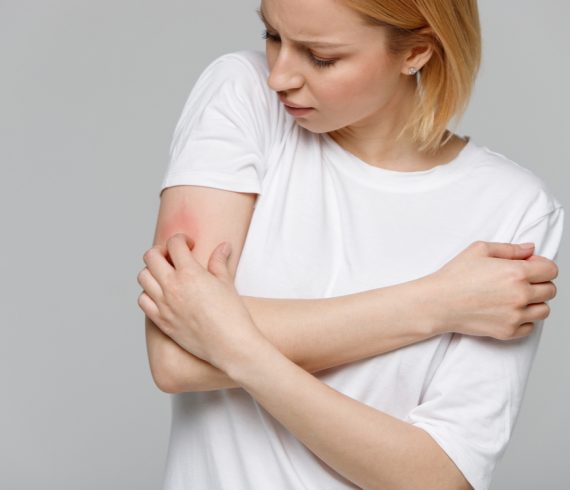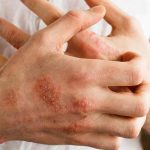Mental well-being is essential to maintain the homeostasis of the body and mind . Pressuring yourself frequently causes psoriasis flare-ups and adds to the individual’s stress, which can lead to a cycle of worry, sadness, and physical discomfort. The psychological effect of the skin condition is considered to be severe in 10–62% of psoriasis sufferers. Controlling or minimizing the signs and symptoms of psoriasis requires a strong mental health foundation.
Patients with scaling and redness on their cheeks, necks, and other easily visible parts of their bodies are more prone to psychological stress and depression, as a result of which they develop low self-esteem, shame, and embarrassment due to their appearance.
“As we all know, beauty is in the eye of the beholder.” A skin condition cannot define who you are and should not make you feel awful about yourself.
Stress can induce psoriasis flares in 43-68% of patients.
Stress influence in psoriasis
Sleep deprivation
As itch is a common symptom of psoriasis, there is a higher incidence of poor sleep among patients with psoriasis than in the general population. Sleep deprivation has been reported to play an important role in the exacerbation of psoriasis.
Studies have shown that sleep deprivation not only results in an acute inflammatory response, characterized by an increase of pro-inflammatory cytokines including tumor necrosis factor-a, interleukin (IL)-1b, IL-6 and IL-17
sleep deprivation at the early stage of the psoriasis process significantly enhances the skin inflammation, and may involve dendritic cell (DC) migration and T-cell activation and proliferation.
During the late night and early morning, there is a significant rise in cell division and proliferation, 1-3-2 kit for psoriasis is an uniquely curated product in line with the body’s circadian rhythm, which is quite beneficial in reducing psoriasis symptoms..

Influence on daily life
A study conducted by Evers et al. found that flares of psoriasis are more frequent in psoriasis patients experiencing permanently high levels of stress , in those suffering from stress, the report showed a tendency to overestimate the severity of their disease and more frequent manifestations of psoriasis plaques on visible areas. In people suffering from stress, psoriasis has a greater impact on daily life and day to day activities.
Acute stress and Stressful events are likely to exacerbate psoriasis. On the other hand, the chronic nature of psoriasis with the resulting degradation in quality of life and the feeling of stigmatization can cause chronic stress. The consequence is an increased risk of anxiety and depression.
Increase in the flare up
Stress may be the result of a psoriasis flare or fear of a possible future flare. A significant portion of stress is caused by other people’s opinions, the reactions of family and friends, and discriminatory conduct in everyday life, which is frequently connected to a misunderstanding of the condition. This stress causes a feeling of being an outcast, leading to a fall in interpersonal and socio-professional relationships
What are the clinical features and psychological effects of psoriasis?
- Chronic fatigue and loss of interest in regular life activities,
- This triggers appetite changes and alters the sleep pattern.
- Psoriasis patients may also engage in negative coping techniques such as alcohol or drug use, self-harm, or other risky behaviors.
To address both the physical and psychological symptoms of psoriasis, treatment may need collaboration between a dermatologist and a psychologist. To make the patient aware of clinical and psychological symptoms of the disease.
The psychological effects of psoriasis can be managed by giving the patient counselling in addition to oral medications. Dr.JRK’s Aforte tablets can be used to reduce the stress and anxiety caused by psoriasis. This is a non-drowsy anxiolytic formulation. So it won’t induce sleep or cause addiction. It is completely herbal and safe to use for longterm

Meditation, yoga, physical activity, and deep breathing exercises are all effective stress management therapies for psoriasis. Simplify your routines as much as possible to reduce stress in your everyday life. Furthermore, behavioral cognitive therapy might help you acquire confidence in your abilities.
Participation in patient support groups and engagement with people who have similar problems can help an individual feel more confident in dealing with the outside world and lead a more serene existence.








